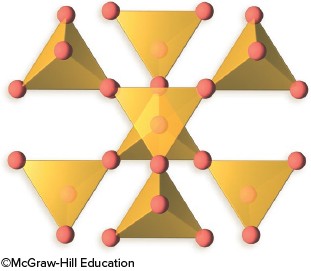Unconsolidated material is likely to be involved in which kinds of mass movement?
A. talus piles
B. block glides, rock falls and rock creep
C. creep, slumps and avalanches
D. consolidation
Answer: C
You might also like to view...
What is the main difficulty in trying to eliminate chlorinated fluorocarbons from the atmosphere?
A) They are very stable and take a long time to decompose completely. B) They are too light and blow away. C) They do not absorb ultraviolet radiation. D) all of the above E) only A and B
Moist air blows across warm water to colder areas inland. What might this produce?
A) decreased inland temperatures B) a cold air front C) a temperature inversion D) fog
What type of silicate minerals is shown from this arrangement of silicon tetrahedron? 
A. double chains B. sheets C. frameworks D. independent tetrahedra E. single chains
Which one of the following is true of most tsunamis?
A) They are faster than seismic surface waves. B) Their wave heights decrease and wavelengths increase as they move into shallower water. C) They are usually started by sudden movement on a megathrust fault, and they have wavelengths that are many kilometers long and wave heights of less than a meter. D) They only occur in the Pacific Ocean basin.